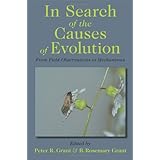
Average Reviews:

(More customer reviews)Well, at least influential for me. Stuart Pimm's "Balance of Nature" is intended for an audience of professional ecologists and (like most academic texts) demands patient, thoughtful reading, but is well worth the effort.
Why influential? Throughout my rather lengthy graduate school "career," I've been struck by the tension between simple academic ecological theory and the stunning complexity of real-world systems. Pimm tackles this condumdrum by focusing on the relationship between species richness and system stability, explaining why the whole is greater than the sum of its parts.
If your ecological education has not already made you suspicious of popular (but naive) concepts of "natural" stability and balance, then this book will open your eyes. Recommended.
Click Here to see more reviews about: The Balance of Nature: Ecological Issues in the Conservation of Species and Communities
Ecologists, although they acknowledge the problems involved, generally conduct their research on too few species, in too small an area, over too short a period of time. In The Balance of Nature?, a work sure to stir controversy, the distinguished theoretical ecologist Stuart L. Pimm argues that ecology therefore fails in many ways to address the enormous ecological problems now facing our planet. Ecologists describing phenomena on larger scales often use terms like "stability," "balance of nature," and "fragility," and Pimm begins by considering the various specific meanings of these terms. He addresses five kinds of ecological stability—stability in the strict sense, resilience, variability, persistence, and resistance—and shows how they provide ways of comparing natural populations and communities as well as theories about them. Each type of stability depends on characteristics of the species studied and also on the structure of the food web in which the species is embedded and the physical features of the environment. The Balance of Nature? provides theoretical ecology with a rich array of questions—questions that also underpin pressing problems in practical conservation biology. Pimm calls for nothing less than new approaches to ecology and a new alliance between theoretical and empirical studies.


